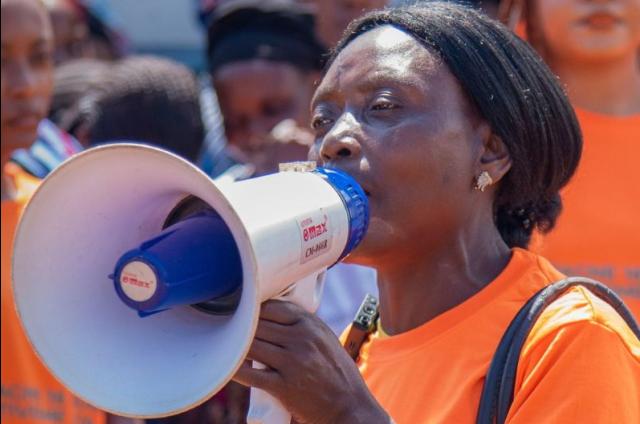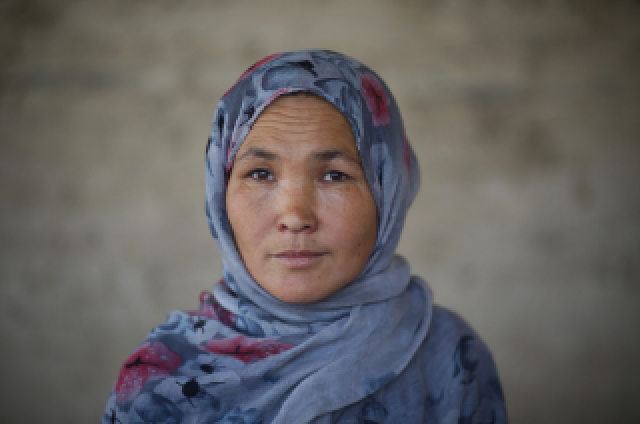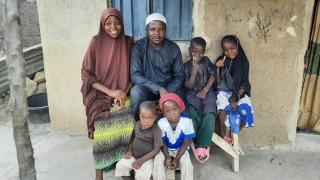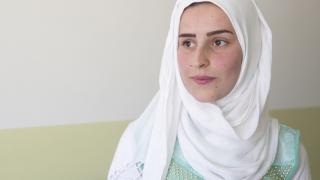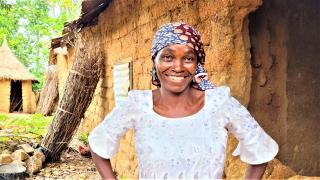Ida's story
My name is Ida
Determined to Change the Justice System in Eastern DRC
My name is Ida Mukungilwa, and I am 52 years old. I am married and have six children. My father passed away before I started high school in Bendera where I was born, and after his death, I faced violence from my father's relatives. They fought with us and took everything we had, including our inheritance. I moved to the Nyangezi District in Eastern DRC after getting married.
Living in Nyangezi I saw the many challenges women face, such as disinheritance, intimate partner violence, rape and exclusion from community meetings, among others.
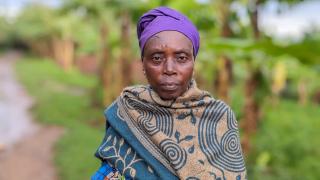
These issues motivated me to join Women for Women InternationaI’s Change Agent Programme in 2018.
This programme gave me the power to understand women's rights, identify various forms of violence in my community, and how to defend the rights of women.
During the programme, Women for Women International introduced me to the gender team from the Ministry of Gender in Bukavu. They occasionally came to Nyangezi to provide training on laws and women's rights. Although they offered a wealth of information and resources for women, their time in the community was always limited. I realised that the community needed someone who would be readily available to support them. I applied to become the gender representative in Nyangezi. Fortunately, I was selected and have a small office in the community.
When I first began working as the gender representative, I was overwhelmed by the magnitude of the work. I had to work directly with survivors who needed solutions, care and a safe space to share their experiences.
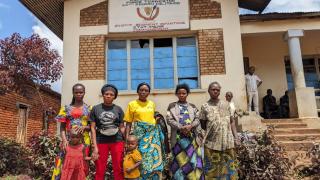
According to a recent consultation we conducted in July in our community, collaborating with the Women for Women International team, only 19% of the women we spoke to appeared to have faith in the system’s ability to handle their cases – the remaining 81% reported that cases are either not addressed or often face some form of delay.
I met many women, those fleeing abusive relationships, mothers seeking justice for their children, and even rape. But as much as I wanted to help, I realised that significant barriers prevented these women from accessing the justice they deserve.
The police stations, for instance, were often intimidating and officers lacked proper training on how to handle cases of gender-based violence. The survivors of violence were frequently met with doubt and outright neglect. Most of the time, perpetrators of violence would give bribes and be set free by police hours or a day or two after being arrested. This has led to women feeling more unsafe, giving up and being discouraged by the system that seems to fail them.
I realised that involving men, boys and community leaders in the conversation was necessary for change to happen.
I started a radio programme and organised monthly community forums in the villages to raise awareness about relevant laws and violence against women and girls. So far, we have conducted community forums in 12 villages in Nyangezi and plan to reach out to more villages.
I am witnessing a significant change in my community. More women are bravely stepping forward to report injustices and fight for their rights.
I have studied the law, and I understand it better now. I plan to run for a seat in Parliament in the next election because I am determined to represent women's issues and change the justice system.
Read more stories
Ikilima
subtitle:
"My friend told me about the programme and said that I would be helped to repair the strained relationship in my family, and I would be taught how to negotiate with him so that we could have discussions as husband and wife."
Faizah
subtitle:
Faizah has always been brave – even aged 13, when her uncles tried to force her into marriage. So, when ISIS attacked her community and warned her not to flee, she harnessed that defiance and dared to find safety. Faizah dreams of a world without war; of peace for her children. Here is her story.
Grace
subtitle:
"I am very proud of myself for achieving all of this, my confidence is at an all-time high right now, and I feel like I can take on the world if the need arises."

